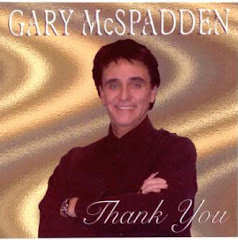Rachelle Gardner makes some tough points from an agent's perspective, on the responsibility of the author to sell books. When I worked with Jerry Jenkins at Moody Press, he always considered it his obligation to market a book for AT LEAST the first year after publication and as long as run up to publication as possible.
If you are not selling books for yourself, your going to limit, dramatically, what you can sell in the future. That is IF you get a publisher, in this market, who is willing to take a chance picking up your project. That is reality to many, MANY currently published authors, finding out their house said "No" to the next project and maybe to some already under contract.
Why You Should Help Sell Your Book
http://cba-ramblings.blogspot.com/2009/06/why-you-should-help-sell-your-book.html
Every time I post anything about building a platform, blogging, or creating an online presence, I inevitably get a few grumbles and complaints about why this is necessary. Some people want proof that all these activities can actually sell books. I also get "what-if" and "but-I" and every possible argument from writers who don't want to do this.
Well, here's the thing. If you manage to get a contract with a mainstream commercial publisher for your first book, that's awesome. But if your book doesn't go on to have strong sales to consumers, your publishing career could be over. Just that quick. Even if your publishing career isn't over at that point, it's definitely handicapped, and you might have to work even harder than you did with your first book to sell a second one to a publisher.
In the golden days of publishing, it was common for publishers to put a book out there, then expect it to slowly build. They'd allow time for readers to find it. Even if a first book didn't sell very well, publishers took the long view of an author, understanding that it might take two or three books for readers to find them. They'd stick with that author and build them over time. But today it's rare to get that kind of treatment. We don't have the luxury of "waiting" for an author to find an audience.
There are exceptions. Occasionally there's a writer that the publishing house believes in so strongly that they'll put out a second and even a third book, despite poor sales, especially if it was a multi-book contract to start with. Hopefully by then, the sales will begin to meet the publisher's expectations. If not... doom.
In general... the latest wisdom from the current publishing industry is this: It's easier for a first-time, never-published author to sell a book to a publisher than it is for an author who's had a book that tanked.
What's the definition of "tanked?" It depends on what the publisher's expectations were to begin with. Your book could sell 75,000 copies, but if the publisher projected 150k, the book may be seen as a failure. Or, your book could sell 20k, but the publisher expected 12k so you are considered very successful, and they'll want more books from you.
What's my point?
In this environment, wouldn't you want to do everything humanly possible to drive up the sales of your own book? I'm talking about sales to the end-user, the reader purchasing your book from the bookseller. Wouldn't you want to be looking at ways that you could find an audience for your book, and at least try to help it fly off the shelves at Barnes & Noble? If your publishing future depends on your sales, it makes sense.
A blog can help you build an audience, but maybe a blog isn't your vehicle of choice. Maybe you have access to 5,000 people or 50,000 people another way... through an organization you work for, or a newsletter you distribute. It doesn't matter. The point is, if you want a career as a multi-published author, that first book really needs to sell. It's in your best interest to find an audience and do what you can to boost sales of your book.
Sure, you could leave all the marketing to your publisher. But then if your book doesn't sell very well, who are you going to blame? Your publisher, of course. You'd be abdicating your own responsibility and the power you have to impact the sales of your own book.
This article is about Bookscan, but the first paragraph gives a bit of crucial information. A publisher is giving the reason for declining to pick up a third book from an author who has published two highly praised books. "...sales of his two titles have been modest in comparison to the great praise and attention his work has received, and in this economy that’s a very difficult obstacle for us to overcome with our accounts and booksellers." The point is, publishers base these decisions on previous sales; more importantly, so do booksellers. Even if the publisher picked up a book from this author, the booksellers may decline to carry it. Bummer.
I'll admit, this isn't an easy road. But you do have some power, and you get to decide: Help sell your book to consumers, or not. It's that simple (and that hard).
Overcome Your Challenges
4 hours ago








and that hard... Depressing, but good advice. Thanks.
ReplyDelete